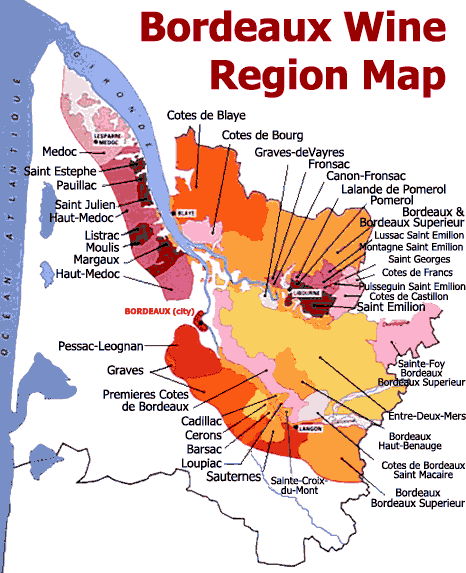 |
| Bordeaux - Beautiful city |
 |
| And home to the greatest wine region in the world |
Well, it certainly is a big topic, one that has had thousands of books written about it and I could not possibly do it justice in one of my short blogs. As you may be aware I visited Bordeaux for a holiday last month and this is intended as the first of a series of blog on my time in the region.
 |
| Bigger isn't always better - New Zealand wine sales have soared |
The comparison with New Zealand is rather apt because 'Kiwi' wine has become very popular in Britain just as sales of French wine have declined in recent years. According to latest Nielsen data 1 in every 5 bottles over £7 is from New Zealand.
But it wasn't always like that. Bordeaux and England have a long association going back to the 12th century when Eleanor of Aquitaine married Henry Plantagenet, the future King Henry II. Bordeaux was in the control of the British for almost 300 years and it was during the time of Richard the Lionheart, son of Henry and Eleanor that drinking the wines of Bordeaux really took off. Between the end of the Hundred Years War in 1453 and the First World War (1914-1918) Bordeaux boomed and much of the wine was exported to Britain as well as the low countries. The Dutch had a major influence as its engineers drained the marshy and swampy Medoc left bank home of the most famous wine names of the region today.
The classification of the wines was started in 1855. You will often hear me refer to '1855 and all that...' It's a flippant remark and the subject actually deserves a blog all on it's own. Typing 1855 classification into Google gets you over 12 million results. It's actually one of the first things you learn about at wine school, Bordeaux usually being the first region to be covered.
The classification of AOCs (often ACs) or Appellation d'Origine Controlée started in the 1930s and
 |
| Bordeaux wine map - All 54 appellations of it |
These stiff rules have become restrictive to the winemakers leading to wine from the new world such as Australia, Chile and the aforementioned New Zealand where there are less restrictions on experimentation becoming popular at the expense of classic Bordeaux 'Claret'.
Just the phrase 'Claret' itself is a British invention. It derives from the French word 'clairet' meaning dark rosé which was the typical style of wine exported to Britain during the 12th - 15th centuries. It is a protected word but I prefer not to use it and you will never see it used on a label.
What you will see is a bewildering array of information including the appellation the wine is from, (See the map opposite) but never the actual grape variety which I am sure is one of the principal reasons why the new world has usurped France and Bordeaux in sales.
I spent most of my week in on holiday in the Cotes de Blaye and Cotes de Bourg. I would guess most of you reading this will not of heard of those areas. It is true that they are not the most well known of the Bordeaux appellations but to actual see the rolling vineyards going on for mile after mile is an awe inspiring sight. In my next blog I will tell you a little more about the Cotes de Bourg.
Enjoying the blog. Why not meet me in person. Visit my website www.gloryofwine.com or follow my Facebook or twitter feeds. I would love to organise a tasting event for you.
Until next time, enjoy your wine.
Cheers!
Simon
No comments:
Post a Comment